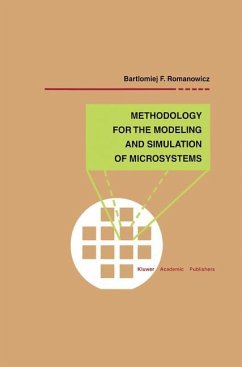Over the past two decades, technologies for microsystems fabrication have made considerable progress. This has made possible a large variety of new commercial devices ranging, for example, from integrated pressure and acceleration microsensors to active micromirror arrays for image projection. In the near future, there will be a number of new devices, which will be commercialized in many application areas.
The field of microsystems is characterized by its wide diversity, which requires a multidisciplinary approach for design and processes as well as in application areas. Although there is a common technological background derived from integrated circuits, it is clear that microsystems will require additional application-specific technologies. Since most microsystem technologies are based on batch processing and dedicated to mass production, prototyping is likely to be an expensive and time-consuming step. It is recognized that standardization of the processes as well as of the design tools will definitely help reduce the entry cost of microsystems. This creates a very challenging situation for the design, modeling and simulation of microsystems.
Methodology for the Modeling and Simulation of Microsystems is the first book to give an overview of the problems associated with modeling and simulation of microsystems. It introduces a new methodology, which is supported by several examples. It should provide a useful starting point for both scientists and engineers seeking background information for efficient design of microsystems.
The field of microsystems is characterized by its wide diversity, which requires a multidisciplinary approach for design and processes as well as in application areas. Although there is a common technological background derived from integrated circuits, it is clear that microsystems will require additional application-specific technologies. Since most microsystem technologies are based on batch processing and dedicated to mass production, prototyping is likely to be an expensive and time-consuming step. It is recognized that standardization of the processes as well as of the design tools will definitely help reduce the entry cost of microsystems. This creates a very challenging situation for the design, modeling and simulation of microsystems.
Methodology for the Modeling and Simulation of Microsystems is the first book to give an overview of the problems associated with modeling and simulation of microsystems. It introduces a new methodology, which is supported by several examples. It should provide a useful starting point for both scientists and engineers seeking background information for efficient design of microsystems.








